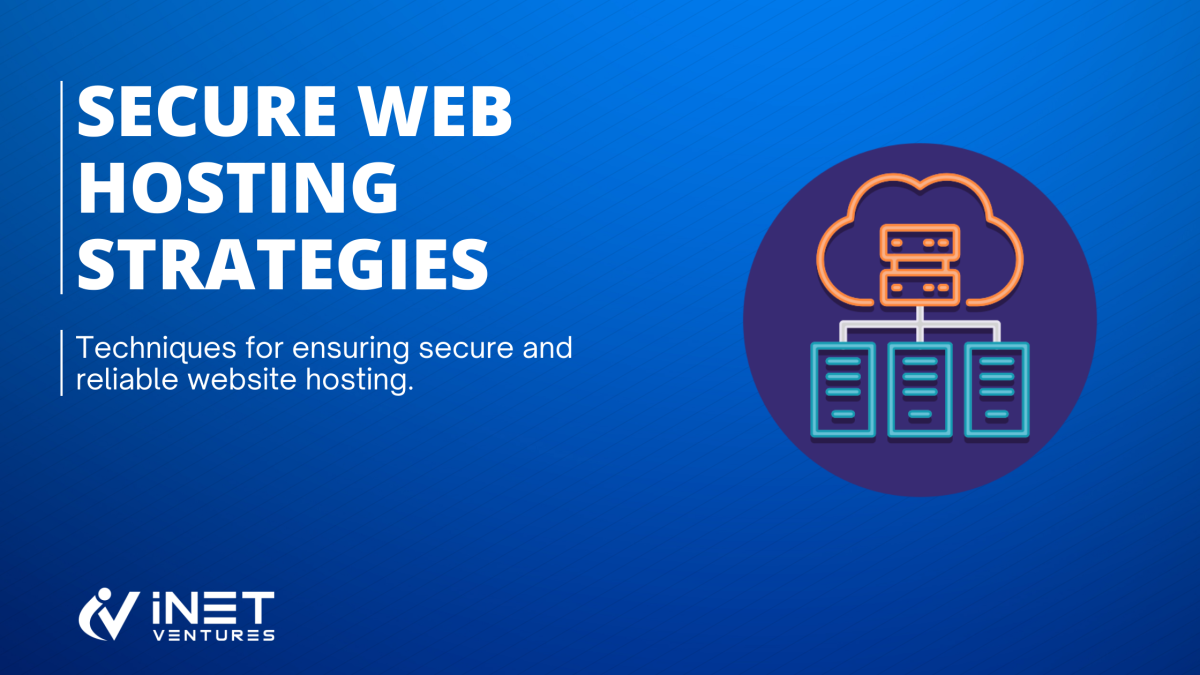With an increase in the number of websites on the internet, the number of cyberattacks are also increasing. As a prudent site owner, you should consider strengthening the security of your website.
Web hosting is an important factor as far as web security is concerned. Before, we have a look at some tips to make web servers secure, have a look at some findings of a reputed web hosting company
Quite recently, one of the world’s biggest web hosting companies reported that they had removed almost 500 million malware threats (250 instances per customer). Hence, it is important that, as a site owner, you employ efficient web hosting security practices.
By the end of this post, you will be able to fill any web hosting security gaps and save yourself from impending cyberattacks.
What Is Web Hosting and Web Hosting Security?
Every website is hosted on a server. Which brings us to the concept of web hosting. In web hosting, a service provider reserves server space for your website’s data and gives you its online access. It facilitates viewing components like code, media, and other files to be viewed on the internet. There are three different kinds of hosting –
- Shared – This kind of web hosting requires less technical knowledge. It is more cost-effective. However, the downside here is that it offers minimal configuration.
- VPS (Virtual Private Server) – With VPS hosting, you get a dedicated server space. It is still cost-effective. But, it needs technical knowledge to control VPS and hence you might seek the assistance of an administrator. You still have full access to the server.
- Cloud Hosting – This type of cloud hosting translates to reduced downtime/ hardware failure. It is slightly more expensive than VPS, and offers load balancing to handle DDoS attacks and high traffic.
Coming to the second aspect i.e. web hosting security, is a collection of protocols, measures, and practices to protect websites, servers, and other data. With that, let’s dive into some of the best web hosting strategies to safeguard web servers and websites.
Best Web Hosting Tips To Secure Website
1. Configure Web Application Firewall
There is a lot that can happen between a web app and the internet, not necessarily good. There are malicious and suspicious requests and traffic that are always on the loose to harm your websites. To protect your websites from such elements, configuring a Web Application Firewall can be one the best ways to secure your website.
A Web Application Firewall or WAF protects your web applications from unauthorized traffic. That’s because all web traffic would first need to pass the firewall before it reaches the server. Furthermore, the WAF analyzes HTTP for any suspicious traffic. A Web Application Firewall can block cross-site scripting (XSS), cross-site forgeries (CSF), SQL injections, and many more such attacks. Plus, if you have a good hosting service with WAF, it will also give you an overview of the blocked attacks as well.
Protection Against DDoS Attacks
To an extent, the WAF can also detect and eliminate DDoS attacks that flood your website with traffic from malware-infected networks called botnets. However, sometimes the WAF loses its efficacy against such attacks, hence, before even purchasing a hosting service, check if it has DDoS prevention tools in place.
2. Use SFTP In Place of FTP
When hosting servers for customers to transfer files over an encrypted channel, choose SFTP (Secure FTP) instead of FTP (File Transfer Protocol).
Here are a few reasons why we support using SFTP. It encrypts all data such as files and other data like login credentials, especially during transmission. It uses a distinct port as compared to FTP. As a result, you can rest assured that no hacker will be able to tamper or eavesdrop let alone steal your data.
3. Remove Applications That You Don’t Use
When a hosting application is installed on the server, it is configured with default plugins, settings, and other third-party applications.
Any additional applications that have coding issues. Or, if you have misconfigured web servers or have design flaws, it can open the doors for cybercriminals. So, if you come across any applications that are compromised or unused, remove them with immediate effect.
4. Take Regular Backups
In an event that your website is compromised, you can always restore it using an existing backup. Or, not only in case of an attack, as site owner too, you can create mistakes. In one such case, you wouldn’t want to build your website from scratch, isn’t it?
Hence, it is recommended that you backup server data regularly.
For instance, if you have selected secure WordPress hosting you get a dedicated “Backups” feature. And, many times, you needn’t get into the hassle of manually backing up data. Instead, you can schedule backups. To know more about how you can create a WordPress backup, refer to this in-depth step-by-step guide.
5. Employ Antivirus Protection
Quite like how you would be on your toes when dealing with malware on your local computer, the same goes for your website. Once malware hits your website, it can modify the inherent files, steal passwords, and even hamper your website’s reputation.
More specifically, once a malicious file reaches the server, its malicious code could impact every other website. As a result, your site may go through a downtime or steal the information of visitors. This could lead to your site being brought down. And, in case, your business depends on your website, this would also lead to loss of revenue.
Hence, malware protection is key in warding off such threats. With anti-malware or Antivirus like T9 antivirus in place, the host can detect any malicious threats much before they can cause harm to files or deface the website completely.
6. SSL Certificates
Another aspect that encrypts data between servers and even authenticates it is SSL, short for Secure Socket Layer. In simple words, it ensures secure access to your website. When you get an SSL certificate on your website, it is identified by a padlock icon. You or your visitors can see this padlock next to the website’s URL.
Now here’s how an SSL certificate adds a robust layer of security. It bars third parties from altering, intercepting, or even recording any sensitive information. This way, if your website holds confidential credentials such as passwords, or other sensitive data, no hacker will be able to steal it.
7. Frequently Change Passwords
As administrators, you should force password changes frequently and ensure to deploy a secure password. This move can significantly reduce the chances of any attack. How? Let’s say, an attacker has access to some credentials of some users. Since they have now changed their passwords, the attacker will lose access to the users’ accounts.
To enforce password changes, you can prompt users, especially those with high privileges to change passwords every few days. For instance, you can prompt users to change passwords every 30 days or so. Additionally, consider encouraging the use of password managers and taking advantage of 1Password coupon codes can make adopting these tools more affordable and accessible for everyone. on systems like Mac, Windows, and Linux. Password managers help users create and securely store unique passwords, reducing the risk of reuse or weak passwords that attackers can exploit.
8. Restrict Unauthorized Access On Websites
Any unauthorized access to a website implies malicious activities or data breaches. Here are steps you can take to prevent unauthorized access on your website –
- Apply two-factor authentication – Two-factor authentication or 2FA adds an additional layer of security and further prevents any unauthorized access.
- Create user roles – Creating user roles means specifying the actions user wise i.e. what they can and what they can’t do. This step can help prevent unauthorized access.
- Use access manager – On the control panel of your hosting service use the sharing feature to create and manage access.
9. Update All Software
Hackers thrive on outdated software and take chances to gain access to your device and so on to your websites. Consequently, they steal information and cause harm beyond the scope of anyone’s imagination. A simple way to thwart hackers is to update software regularly.
10. Consider Managed Hosting Plans
If you are running a website but don’t have enough time to track security, you can opt for a managed hosting plan. Unlike unmanaged hosting plans that leave everything to you, managed hosting plans handle various kinds of security issues such as handling security updates and patches or providing any additional resources.
Additional Tip – Whitelisting IP Addresses
As a web hosting security advice, you should prompt customers to whitelist IP addresses instead of giving every IP address an open access. This way only those IPs that are approved can access administrative account areas.
To Sum Up
Every bit that you do to improve your web hosting security can help protect your website’s sensitive data and website as a whole. Not to mention, a secure website brings in more organic traffic. To recap what we’ve discussed, take regular site backup, remove unused applications, configure Web Application Firewall, check for SSL certificate, and keep malware monitor tools handy. If you found value in this post, do let us know in the comments section below.

Sarang Bhargava is an avid technology enthusiast and content creator with over half a decade of experience. As a part of Systweak Software, he specializes in writing about software, apps, and cybersecurity-related topics. His passion for writing stems from experimenting with various apps and software-spanning devices and operating systems. He also loves to stay updated with the latest trends and innovations in technology. When not writing, you can either find him dozing off or binging on web series and movies.


